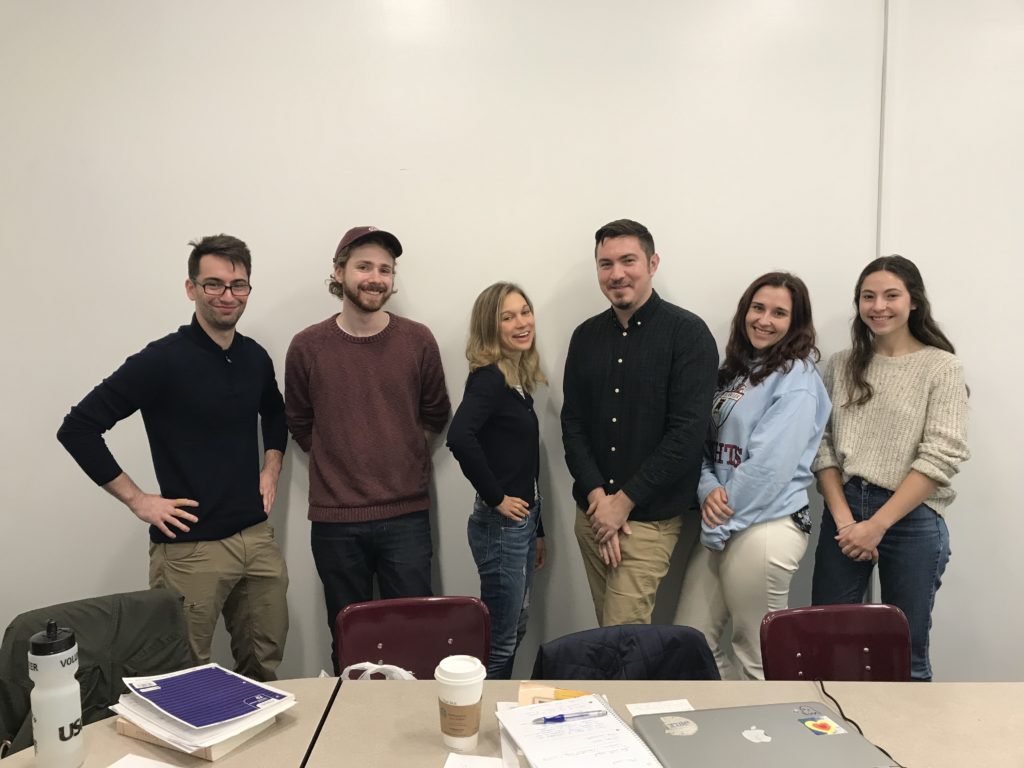Wayward Lives, Beautiful Experiments is an exploratory, experimental history of the lives of young black women in northern cities in the early twentieth century. Its author, Saidiya Hartmann, had just won a MacArthur “genius” grant for her innovative scholarship when we sat down to discuss the book earlier this month. I think that it was at this moment that the seven students in History 5410 Race and Gender in Modern America really gelled. The day’s student seminar-leaders guided us through a provocative, wide-ranging discussion about how Hartmann’s method beautifully evoked the inner worlds of women largely invisible in the historical record where they mostly appear as statistics in sociologies of the ghetto, names on police blotters, or case files of detention centers. We considered what Hartmann taught us about these young women’s lives with her method that we might not have understood otherwise and discussed whether or not this was a method that graduate students in history might want to embrace.
Hartmann’s book is among a set of histories of race and gender in the U.S. since 1877 that the course includes. We have read about miscegenation, farmworkers and migrants, and women’s employment and “economic citizenship” and are moving on to civil rights, conservative politics of the family, and mass incarceration. Katie, a first-year doctoral student in the department, comments that “I have never explored race and gender exclusively in a course and the well-selected readings and discussions have forced me to re-evaluate my preconceived notions of both of these concepts. This class has challenged me to really understand how race and gender construct one another in today’s world.” Grace Campagna, a senior history major, echoes the point, observing that “The biggest takeaway from the class so far has been seeing the range of ways that those in power have used race and gender to construct and uphold social, political, and economic systems.”

The seminar is based in a student-centered pedagogy. Will Hogue, a second-year doctoral student, says that “Dr. Swinth’s commitment to experimenting with new and more democratic pedagogical methods has been very rewarding.” He adds, “The collaborative syllabus model gives the students not only the chance to tailor the course to their personal needs and goals, but also the chance to practice some lesson planning and course construction. In all, it has been helpful for our development both as scholars and teachers.” In fact, the class just completed a collaborative process to set the topics for the last four weeks of the seminar, all chosen by students to reflect their interests and to pursue questions that have arisen in the first part of the course.
At its most basic, this course investigates the ways that race and gender have shaped what it is like to live in the United States today. It draws upon the field of history and the skills, talents, and creativity of committed graduate students (and an accompanying professor) to explore the key categories and mechanisms that have made race and gender “tick” in American culture and society since Reconstruction. In many it is a traditional graduate readings seminar. Course readings analyze how these key, intersecting categories shaped American politics, economy, culture, state, and criminal justice system. But beyond that, the seminar’s deeper goal is to follow the class’s collective interests. What do class members, as individuals, and the class, as a group, want to understand better and more deeply about the history of race and gender in the U.S.? This course is as an opportunity to figure out why learning about this topic matters to comprehending U.S. history, why it matters to students (personally, professionally, as citizens/contributors), and why it matters to the larger world, future students, and other audiences we have yet to identify.
